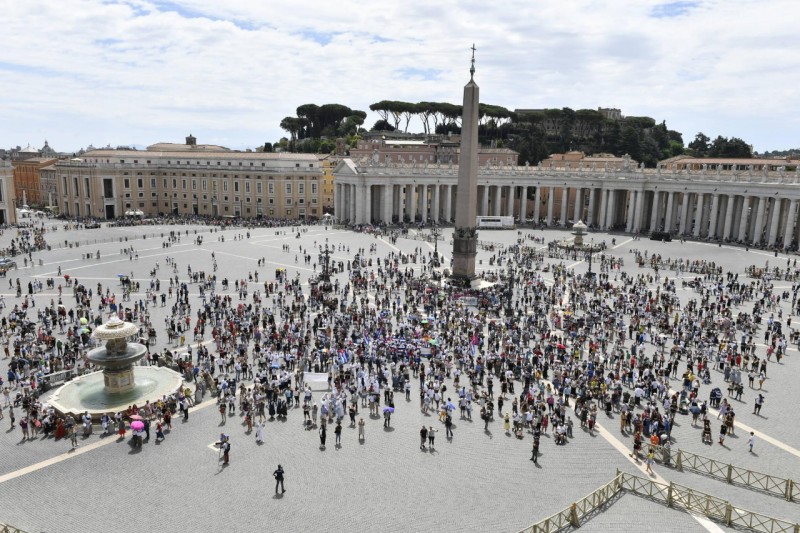Dozens of Cubans gathered in Saint Peter’s Square in the Vatican on Sunday, October 24, 2021, to protest against the dictatorship and repression in Cuba. The objective was to back the mass mobilization that the opposition is planning to hold on November 15 against the Cuban Government, which the latter has prohibited.
The rally was underway as the Holy Father was praying the Angelus; however, as political protests are not permitted in Saint Peter’s Square, regardless of their nature, the police barred the protestors from entering the Square. Those that succeeded in getting through, had their flags taken away from them. Although the Vatican is against any citizen’s repression or lack of freedom, it does not allow the use of Saint Peter’s Square for political ends.
Eventually, the protesters left the Square and continued their rally in the via della Conciliazione, in front of the Square.
The Pope’s Words on Cuba
The last time Pope Francis spoke about the situation in Cuba was after the Angelus on Sunday, July 18. He said he was close to the “dear people “ of Cuba “in these difficult moments, especially of the families that suffer the most.”
Pope Francis prayed to the Lord to help Cubans “to build in peace, dialogue and solidarity and an ever more just and fraternal society, exhorting all of them “to entrust themselves to the maternal protection of the Virgin Mary of Charity of Cobre,” as “She will accompany you on this path.”
Statements of the Church in Cuba
In face of the protests against the Government, which began in Cuba last July 11, the Cuban Bishops issued a press release exhorting their countrymen to build the Homeland by “common agreements and by taking concrete and tangible steps that contribute to it with the input of all Cubans without exceptions.”
In the document, the Prelates say they “cannot close their eyes or turn their gaze, as if nothing was happening, in face of the events the Cuban people lived on July 11 in which, despite the COVID restrictions, the citizens took to the streets to express “their discontent given the deterioration of the economic and social situation our people are experiencing, which has been significantly accentuated.”
“We understand that the Government has responsibilities and has tried to take measures to palliate the difficulties referred to, but we also understand that the people have the right to express their needs, longings, and hopes and, at the same time, express publicly that some of the measures taken are seriously affecting them,” they continued
The members of the Episcopate also stressed their concern that “the answers to those claims is an immobility that contributes to give continuity to the problems, without resolving them. Not only do we see that the situations are becoming graver, but also that we are moving towards a rigidity and hardening of positions that could engender negative answers, with unpredictable consequences that would harm all of us.”
Translation by Virginia M. Forrester










